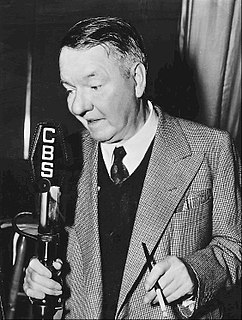A Quote by Otto Rank
Thou shalt not covet thy neighbor's wife, for there are plenty of others.
Related Quotes
Owe no man any thing, but to love one another: for he that loveth another hath fulfilled the law. For this, Thou shalt not commit adultery, Thou shalt not kill, Thou shalt not steal, Thou shalt not bear false witness, Thou shalt not covet; and if there be any other commandment, it is briefly comprehended in this saying, namely, Thou shalt love thy neighbour as thyself.
Beneficence is a duty. He who frequently practices it, and sees his benevolent intentions realized, at length comes really to love him to whom he has done good. When, therefore, it is said, "Thou shalt love thy neighbor as thyself," it is not meant, thou shalt love him first and do him good in consequence of that love, but, thou shalt do good to thy neighbor; and this thy beneficence will engender in thee that love to mankind which is the fulness and consummation of the inclination to do good.
Wouldst thou know the lawfulness of the action which thou desirest to undertake, let thy devotion recommend it to Divine blessing: if it be lawful, thou shalt perceive thy heart encouraged by thy prayer; if unlawful, thou shalt find thy prayer discouraged by thy heart. That action is not warrantable which either blushes to beg a blessing, or, having succeeded, dares not present a thanksgiving.
I know that I shall have lost to the jungle if I take a weak moral standpoint or relax my mental punctiliousness. I have therefore come to a certain belief which is based on three powerful effective commandments: THOU SHALT BE ENTERTAINING AT ALL TIMES. THOU SHALT OBEY THY ARTISTIC CONSCIENCE AT ALL TIMES. THOU SHALT MAKE EACH FILM AS IF IT WERE THY LAST.
I am convinced that the moment is coming when, with its message of eternal, universal values, it will come to the aid of our society. For in these words: "Thou shalt not kill; Thou shalt love thy neighbor as thyself," lie those very moral principles that will enable us to survive even the most critical situations.
First shalt thou take out the Holy Pin. Then shalt thou count to three, no more-no less. Three shall be the number thou shalt count, and the number of the counting shall be three. Four shalt thou not count, neither count thou two, excepting that thou then proceed to three. Five is right out. Once the number three, being the third number, be reached, then lobbest thou thy Holy Hand Grenade of Antioch towards thy foe, who, being naughty in my sight, shall snuff it.
Can we reasonably expect happiness from an insatiable appetite which, no matter how it stuffs its belly, is still psychologically like Oliver Twist in the poorhouse, holding up an empty bowl and begging, "I want some more"? Isn't it possible that our dream of the good society contained, from the beginning, a hidden violation of the Tenth Commandment "Thou shalt not covet thy neighbor's goods"?






































